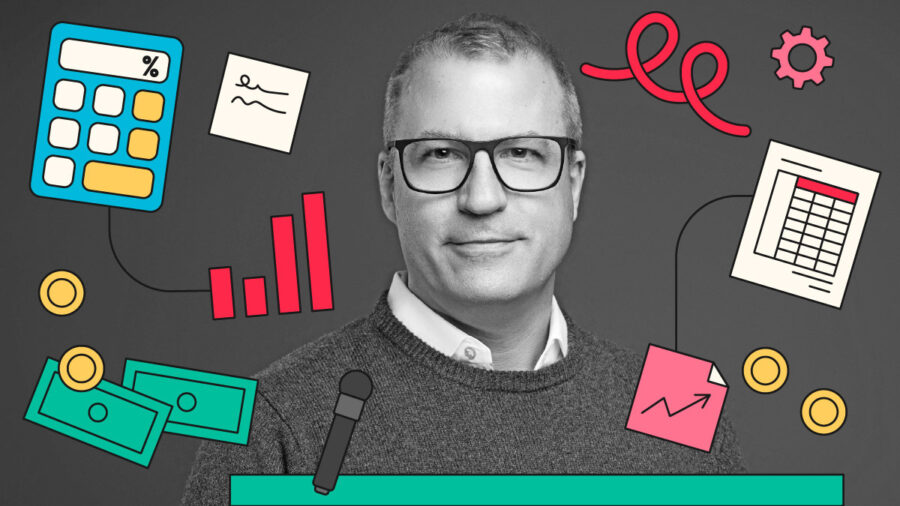
Jason Eglit, the CFO Signifyd has been key to helping the fraud-prevention platform grow its operations. Here, he discusses what it takes to build a company sustainably, why modern finance leadership is all about translating numbers into insights teams can use to make better decisions and how skiing helps him recharge.
How did you become a CFO?
My early background was in physics and applied mathematics, which led to a few years working in the private sector before I decided to pivot. Business school opened up a path into consulting and later private equity, which gave me a broader view of how companies operate.
Eventually, I stepped into my first CFO role and I’ve been in finance leadership positions ever since. It’s a role that pulls together all the things I enjoy: analytical thinking, problem-solving and working across teams.
What skills or traits does a good finance leader need?
The role has definitely evolved. I think there’s been a shift from CFOs being mostly accounting-focused to now being much more operational. For me, one of the most important skills is being able to explain how the numbers relate to what’s actually happening in the business.
You’ve got to be able to talk to anyone in the company and translate the financials into something that makes sense in their world. I see part of my role as being a translator. I take financial results and help other teams understand them in a way that makes sense for their part of the business.
What excites you most about your current role?
I really enjoy being part of an industry that’s changing fast. What we’re doing at Signifyd reminds me a bit of where cloud computing was 20 years ago. At that time, nobody imagined outsourcing their IT stack, but today it’s becoming the norm.
Companies have traditionally built big internal fraud teams and we’re helping them to rethink that. So, for me, being at the forefront of that shift is energising. I like driving change and helping shape how the industry evolves.
What’s the biggest challenge facing your sector at the moment?
Honestly, it’s how crowded and confusing the space has become. There are so many vendors out there claiming to do similar things that it’s hard for buyers to understand what really works and what doesn’t. Our challenge is making sure our message cuts through that noise, so people understand what we do and how we do it differently.
What single thing do you think would make your job easier?
A time machine! I feel like there’s never enough time in the day to get through everything. If I could magically extend the day or get a prioritised to-do list handed to me each morning, that would be amazing.
That said, one of the reasons I like this job is the variety. I get to weigh in on everything from high-level strategy to minor decisions. Compared to when I worked in private equity, I find this broader scope more fulfilling.
What’s the best bit of business advice you’ve ever received?
Bring a point of view. Whether it’s a meeting, a project or just day-to-day work, don’t show up passive. Come with your own perspective.
When someone asks, “What should I do next?” I always encourage them to bring their own perspective. Chances are, they’ve been thinking about the issue more closely than I have and I value hearing their take. I’m always happy to help make a decision, but I really appreciate it when people come in with a point of view and a sense of direction.
What book do you think every finance leader should read at least once?
Who: The A Method for Hiring, by Geoff Smart and Randy Street has had a big impact on how I think about building teams. It focuses on hiring for outcomes, not just job descriptions. What does success look like in this role? What are you really hiring someone to do?
Hiring mistakes are incredibly costly. This book gave me a much better framework for avoiding those mistakes.
What do you do outside of work to protect yourself from burnout?
I spend a lot of time with my wife and daughter and that time means a lot to me. In the winter, we ski a lot. Living in Seattle, we’ve got access to the mountains and we usually head up every Friday night and come back Sunday. It’s become a regular thing we do with other families. It’s outdoors, it’s social and it’s a great way to stay active during the winter months.
What’s been your proudest achievement in your current role?
Business is a team sport, so it’s hard to single out something that’s just mine, but I’d say being part of helping Signifyd grow into a true mid-market business has been really rewarding.
That means putting scalable systems and processes in place and, maybe more importantly, learning to say no to the things that won’t help us grow. It’s about having the discipline to focus and then build repeatable success around what we’re choosing to pursue.
If you weren’t a CFO, what would you like to do?
I’d 100% be a rock star. I love playing piano and have been in bands over the years. I don’t know if I could keep up with the touring lifestyle now, but it would’ve been a fun ride. Music has always been a big influence in my life.

Jason Eglit, the CFO Signifyd has been key to helping the fraud-prevention platform grow its operations. Here, he discusses what it takes to build a company sustainably, why modern finance leadership is all about translating numbers into insights teams can use to make better decisions and how skiing helps him recharge.





